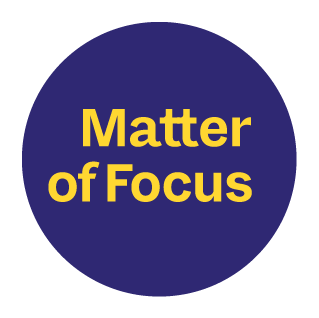In the public and voluntary sectors, demonstrating the impact of your initiatives is crucial. Yet, it’s often challenging to articulate the real difference your work makes to communities and individuals.
It can seem easier to talk about what your initiative has done when really you need to talk about is what difference it has made.
Outcome- and impact-focused reports tell a compelling story of your work’s contribution to improving the lives of the people and communities you have influenced, backed up with evidence.
This is the final post of six key pillar posts that will take you through our approach. We recommend reading each of these posts and following the links we’ve made to other useful tips and tricks. If you’re working on evaluation and outcome-monitoring, you might like to come back to these posts as and when you need support. We’re here to help! So please do get in touch if we can help you embed an outcome-focused approach to your work.
- An overview of the Matter of Focus approach
- Understand the outcomes and impacts that matter
- Understand the unique context of your work
- Get the data and evidence you need to track your progress
- Track and visualise the difference you make
- Report in an outcome-and impact focused way (you are here)
Many teams find it difficult to link their day-to-day activities to tangible outcomes. It’s easy to focus on what you’ve done rather than the difference it has made.
For many, this means that the evidence you have to demonstrate your work mostly focuses on delivery benchmarks and not outcomes. And yet, what you’re most passionate about being able to show is the way your work has improved outcomes for people and communities.
Reporting that tells the real story of the difference you make
Our approach supports you in connecting these dots, using real-time evidence to build a narrative that showcases the true value of your work.
We recommend gathering evidence as you go, learning together as a team, and reporting frequently so that you can build a contribution story in real time – not just at the end of a project.
The best contribution stories use data and evidence to do the following.
- Focus on outcomes and impacts – not just what was delivered, but also how it made a difference for people and communities.
- Link activities to outcomes and impacts – clearly demonstrate how the specific activities are linked to the outcomes and impacts that are important .
- Be transparent – use evidence well to show how conclusions have been reached, what data has been used and what that data relates to.
- Talk about the wider context – show how the context has influenced the delivery of activities and outcomes.
- Illustrate findings – with photographs, quotes, graphs, and other visualisations .
If you have been following the Matter of Focus approach you won’t be surprised to hear that we believe in using your outcome or impact map as the basis for reporting. This means reporting through different levels of outcomes to demonstrate the link between what you did and what difference it made in logical steps. See our post about using our outcome mapping headings for more on this.
Reporting in real-time
Reporting is much easier if you record data and your reflections on that data as you go. That way you build up your contribution story step by step, rather than having to trawl back over what you have done after it has happened.
Tracking as you go means you are more likely to make sure you have the feedback, data and evidence you need to substantiate any claims, and you will notice gaps in your data much more quickly.
💡We created our software OutNav to enable teams to structure their reflection, learning and reporting.
In OutNav you link your data and evidence to the relevant steps in your outcome map, so gaps are easy to spot.
Working together in a shared platform, your team can collaborate to make use of your data and produce reports quickly that are tailored to fit different audiences.
Whatever method you use for reporting – here are some tips to help you stay outcome- and impact-focused.
Tips for robust reporting
- Describe your activities succinctly – they are important, but the reader needs to know ‘what next?’
- Include discussion of the challenges and opportunities that were encountered during delivery – these help to put the work in context and bring it to life.
- Answer the questions: who was engaged, how did they feel or react, what did they learn and gain, what did they do differently and what difference did this make?
- Provide as much evidence as necessary to substantiate your claims. (See our post Track and visualise the difference you make)
- Think carefully about who your report is for and write for them.
- Use pictures, quotes, and data visualisations to help tell the story.
